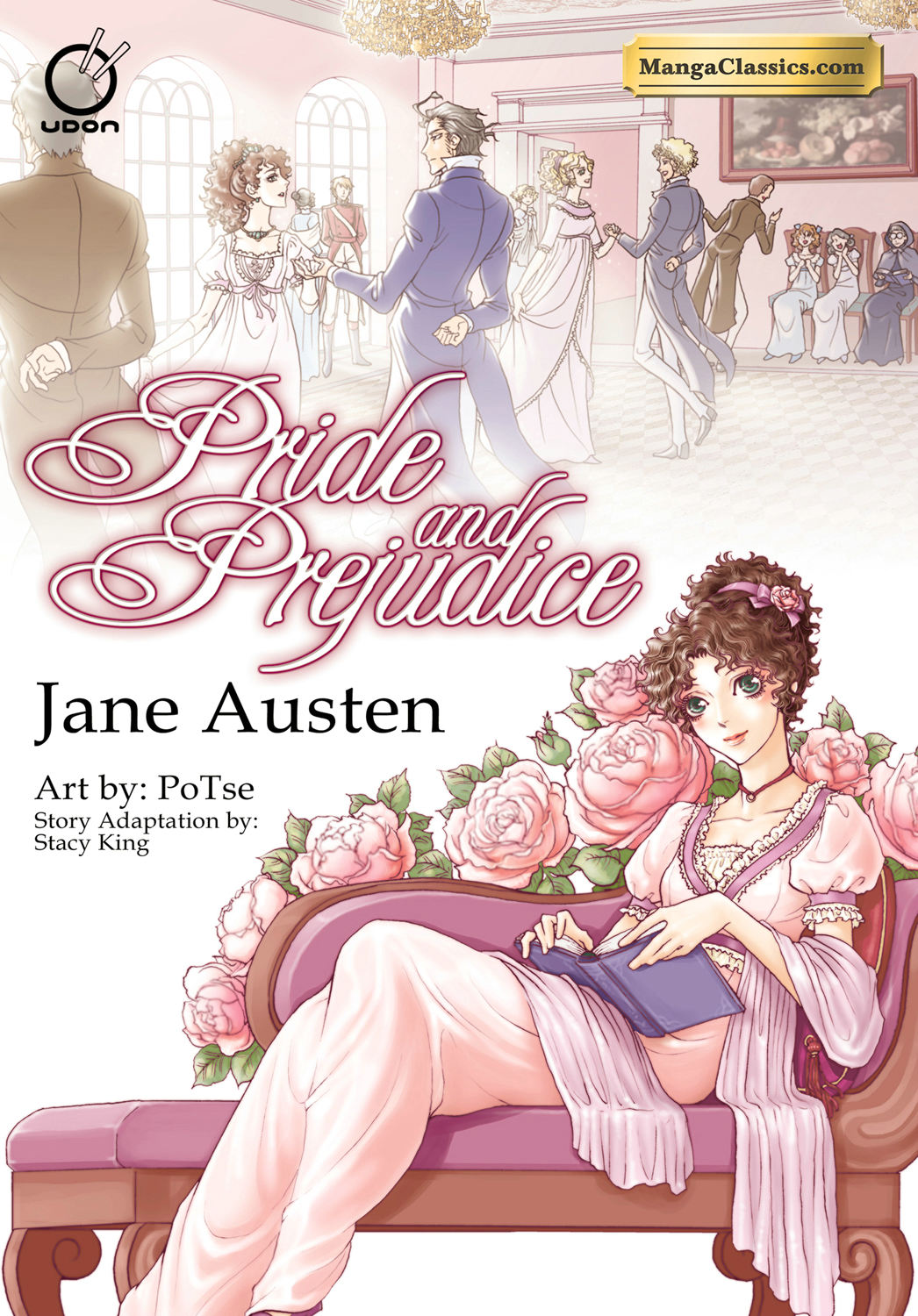 Jane Austen is one of the quintessential authors of the 19th century. Her popularity has gotten to a point where fans of her work are called “Janeites†As with almost all 19th century literature, there have been plenty of adaptations of her books. Her most famous book, “Pride and Prejudice,†has gotten the manga treatment with Stacy King writing the script and Po Tse doing the art and published by UDON Entertainment.
Jane Austen is one of the quintessential authors of the 19th century. Her popularity has gotten to a point where fans of her work are called “Janeites†As with almost all 19th century literature, there have been plenty of adaptations of her books. Her most famous book, “Pride and Prejudice,†has gotten the manga treatment with Stacy King writing the script and Po Tse doing the art and published by UDON Entertainment.
The manga improves upon what Austen wrote almost 200 years ago.
In the fictional English town of Hertfordshire, Mr. and Mrs. Bennet try everything to marry off their five daughters. The second oldest, Elizabeth, has caught the eye of Mr. Darcy. Problem is Elizabeth distrusts Mr. Darcy seeing him as too prideful and cold. Throughout the novel events cause Elizabeth to start seeing a different side to Mr. Darcy.
“Pride and Prejudice†has been touted as one of the greatest romance novels of all time. Though it is much better written than many romances, it’s still just that. The story mainly focuses on Elizabeth going back and forth of loving Mr. Darcy and not loving him. There is some genuine and interesting plot, like Elizabeth’s sister Lydia eloping with Wickham, a man Elizabeth discovers is a gambling degenerate, it’s overshadowed by the meat of the story. Women getting married and the reputation it attracts may have been a topic du jour in the 19th century, today it comes off as a bore.
One thing that can be said about the manga is that it makes the story more interesting. It uses Austen’s language sparingly which is good considering that Austen has a tendency to come off as snobbish and full of herself. We can actually see the wit that many fans claim is in her books much better here. Elizabeth, the most “witty†of the characters, appears to be just that even though her wanting Mr. Darcy comes off as typical weak willed romance genre character.
The art can be described as typical shojo fare, equating itself to the likes of “The Wallflower,†“Nana†and “Kimi Ni Todoke.†This style actually fits “Pride and Prejudice†perfectly in that the story pretty much is written for females. Not that there’s anything wrong with that. Pride and Prejudice was essentially a mainstream romance novel, so why not make it look like a mainstream shojo manga?
Of course, the manga has to add some typical manga tropes. One of the most glaring is the scene where Mr. Collins tries to make Elizabeth say yes to marry him. In one of the panels we see him pop out of a teapot, making Elizabeth do a spit take. In between some chapters there are yonkoma (four panel comics) featuring the characters doing a little bit of slapstick. These yonkoma do offer a bit of relief from the main story and can be genuinely funny.
Stacy King has taken Jane Austen’s “Pride and Prejudice†and has made it tolerable for Austen haters and a joy for Janeites. Po Tse’s shojo style art completes the recipe for what is essentially the quintessential romance novel.

Leave a Reply